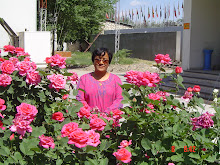After soliciting views from many friends, reviewing the opinions posted by different individuals under “happiness as an indicator of sustainable mountain development” and exploring my own realizations, I thought to share a few points.
• Happiness is a relative phenomenon and it depends on the degree of the realization of human attainment. Every living being is in favor of happiness. It should be viewed in a dynamic world. Change takes place everywhere and every moment. Development itself is not static and it is even more relevant to sustainable development. Therefore, the relationship between sustainable development and happiness passes through a process of continuous renewal all the time.
• Sustainable development is a state when people are aware of their own situation, are able to attain basic needs and have a foundation for meeting their development need without any major hardships. The development needs will encourage them to go for innovation, exploration, experimentation etc. But this is also not the end of the world. The higher level needs, desires and expectations will be always there one after another.
• Boris Pasternak, the Russian novelist, in his novel, “Dr. Zivago” has said that "consciousness is poison." The more you know, the more you are exposed to higher level of realization. On the contrary, “ignorance is bliss” as you know nothing critically. One can't cast vote in favor of ignorance. Of course, everyone has a right to be conscious and enlightened.
• Sometimes, the cultural bond also hinders the happiness of individuals. For example critically aware women in Afghanistan are unhappy to wear Burqa (long-veil, which covers whole body of a woman). But in the remote villages, still they enjoy wearing Burqa as culturally prescribed dress code. But when they will understand the reality that the dress code restricts their freedom of choice, it will chase away their comfort and happiness. But at the same time, such critical awareness will serve as foundation for happiness in future.
• The Buddhist philosophy provides a definition of happiness. It says that well being drawn from the harmonization of spiritual and material aspects of life is happiness. This concept was well adapted in the country development strategy paper of Bhutan. The strategy paper was prepared by UNDP-Bhutan. This clearly spells out that one should have development objectives and also life goals. Human being could be considered truly happy only when one attains “enlightenment” (superior level of consciousness). Enlightenment enables to understand the causes and effects of happiness or worries.
• In other words, to be in the state of happiness, people should have freedom, self-reliance, socio-economic well being, cultural harmony, opportunities, livable and likable environment, topography friendly infrastructure, etc. This is not a wish-list. Pretending that happiness is free from worldly comfort and pleasure is sub-normal state of mind.
• The reflection of the collective practices in the community system will bring both, comfort and pleasure for a particular community of people. The respect for indigenous knowledge, its integration with economic activities, regeneration of community coping mechanisms such as use of herbs adapted by the mountain people (traditional healing system), renewal of traditional technologies, etc certainly will contribute to community happiness.
• At individual level, “happiness” is to be seen as enlightenment. Otherwise, happiness will be limited to the bushman of “God must be Crazy”. The “coca-cola” bottle (foreign body) was accepted as a divine gift from the God. Coca-cola brought the happiest moment to him. The same foreign substance became a source of sorrow to the whole community of the Bushman after confronting with the reality.
Mahatma Gandhi has said “earth has enough for everyone’s need, but not for greed”. It indicates that everyone should be aware of his or her need. It certainly contributes for “happiness”. Happiness could be considered as social well being or status of an individual, group, family, etc in totality as mentioned by Wolfgang in the email.
Finally, I like to summarize my ideas:
• Happiness is a state of mind, which enables you to share your ideas, feelings, life goals, objectives etc by being in the superior state of spirituality.
• Happiness is infections and extends your joys to others, helps to bring trust among people.
• Happiness contributes in developing positive attitudes - healthy thinking, more innovations, and so many ideas. When people are not happy, they hide their wrong attitude.
• “Information is power” and rationally utilized power leads to happiness. Similarly, new information leads to higher level of awareness. The newly attained awareness takes you to a new level of consciousness. When you know that it is good, you feel happy and if that is bad you feel sad. Happiness could be short, spontaneous or enlightened. In any form, this is the stage of superior emotional state.
• The criteria to measure individual, family and community happiness could be developed and this could be one of the best indicators to measure sustainable development among mountain communities.
This note has been shared with the net work group of ICIMOD regarding the development indicators considered for the sustainable development.
November 5, 2003
Friday, August 7, 2009
Subscribe to:
Comments (Atom)
